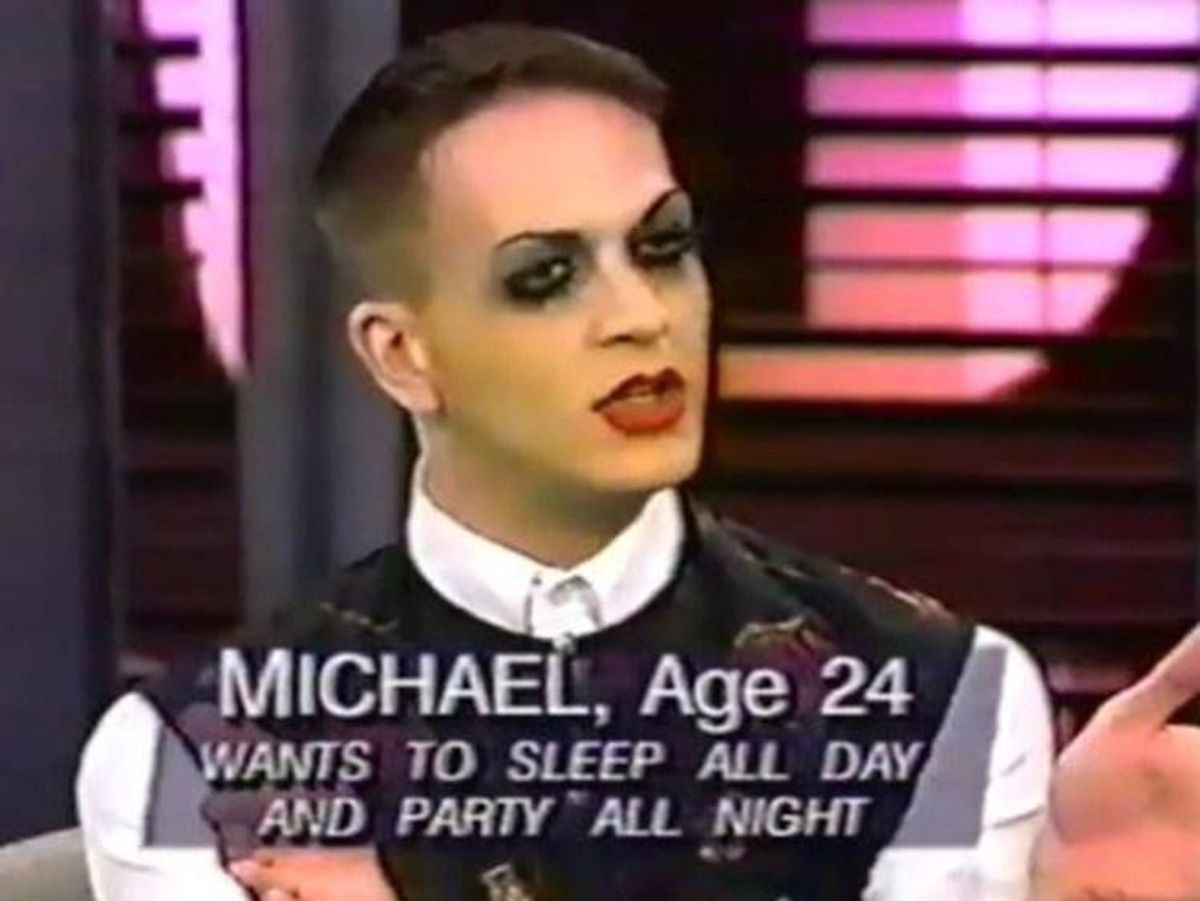Nightlife
Halloween Party Cancelled After Petition Demands Michael Alig's Removal

LGBTQ safe spaces "are not places where violence is encouraged or romanticized."
October 30 2017 12:25 PM EST
May 31 2023 6:09 PM EST
By continuing to use our site, you agree to our Private Policy and Terms of Use.

LGBTQ safe spaces "are not places where violence is encouraged or romanticized."
When Sex Cells, a monthly queer DJ night at Los Angeles' Echoplex, decided to book Michael Alig for its Halloween party, a petition immediately formed, demanding the notorious New York club kid be removed from its lineup. With more than 2,500 signatures, Alig's name was eventually pulled from promotional materials and the event was cancelled altogether.
Alig spent nearly two decades in prison for manslaughter, before being released in May 2014. The dismembered body of his victim, Andre "Angel" Melendez, was discovered in the Hudson River in 1996. He and his accomplice Robert "Freeze" Riggs killed the clubland drug dealer in their shared apartment that same year, before attempting to hide the body and later blaming excessive drug use in court. This earned them both a reduced sentence from murder to manslaughter.
Sex Cells booked Alig to co-host their October 27th event alongside DJ Keoki, who's Alig's ex-boyfriend from the '90s heydays, and Miss Kitten. This lineup, according to petition creator Patrick Waechter, sends a negative message to "young and impressionable LGBTQA individuals that sensationalizes this act of violence and the drug abuse that led up to it as if these things are acceptable, or even glamorous."
Waechter's open letter continues, underlining the importance of LGBTQ safe spaces. "They are not places where violence is encouraged or romanticized. We cherish and celebrate the sacred and fleeting nature of life. We believe these safe spaces must be maintained, and that any challenge to the nature of positivity and safety must be kept at bay from our nightclubs in order to protect the posterity of our culture, and the lives of our friends and loved ones."
Danny Fuentes, curator of LA's Lethal Amounts gallery, is behind Sex Cells' controversial booking, and told LA Weeklyhis lineup was chosen to recreate the influential period of '90s NYC nightlife that Alig was at the center of. "I booked Alig because I liked the idea of the bringing out the original party monster for Halloween and re-creating the magic of the '90s New York club scene (often imitated and never replicated)," he said.
Calling the petitioners "keyboard warriors who made it a mission to get us shut down," Fuentes adds that he was unsure why his event was met with such dismay because Alig "has already hosted plenty of parties since being released from prison, both here in LA and currently in NYC." He asks, "What makes this party any different?"
Beyond criticizing Fuentes for glamorizing someone whose clubland reign ended in bloodshed, the petitioners fear Alig's involvement in nightlife today could end in even more violence. "If, in fact, it was the drugs that caused Mr. Alig to commit this horrible, pre-meditated act of violence and inhumane care for a lifeless body, what is to say that he would not do it again under the influence of the same substances today?" they conclude.
This spring, Alig was charged for smoking meth in a Bronx park, and has been criticized by longtime friends for returning to his old drug-fueled ways. "I don't want anything to do with [Alig] anymore until he gets his shit together," nightlife legend Steve Lewis told Page Sixearlier this year, commenting on DJ Keoki's January arrest when former NBC producer Thomas Felty was found dead in his apartment. "[Alig] was planning to move into that apartment," Lewis alleged.
So while Alig boasts about "making clubs great again," and continues showing zero remorse about his deadly drug abuse, perhaps it's time party promoters finally do away with their nostalgia, and instead focus on creating a positive future for LGBTQ clubland--one where 51-year-old drug abusers convicted of manslaughter aren't paid, promoted and publicly portrayed as some iconic emblem of queer party culture.
Sexy MAGA: Viral post saying Republicans 'have two daddies now' gets a rise from the right